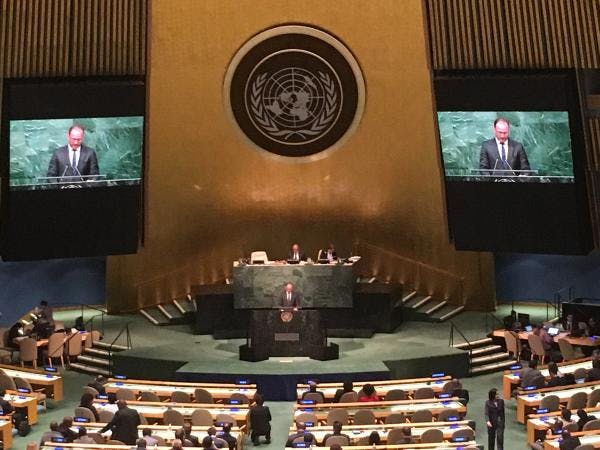La victoire « des droits humains » lors de l'UNGASS sur les drogues dont personne ne parle, et comment celle-ci peut être exploitée.
Bien que décevant, le document final utilise un nouveau langage relatif aux droits humains qui pourrait signifier des progrès après l'UNGASS de 2016. Pour en savoir plus, en anglais, veuillez lire les informations ci-dessous.
Abonnez-vous à l'Alerte mensuelle de l'IDPC pour recevoir des informations relatives à la politique des drogues.
The April 2016 UN General Assembly Special Session (UNGASS) on the world drug problem offered a unique opportunity to re-examine the approach of punitive suppression that underpins global drug control. As the first such meeting to be held since 1998, it was a chance to set a new course, leaving behind what the UN Office on Drugs and Crime has called the negative ‘unintended consequences’ of the ‘war on drugs’.
Part of setting a new course must mean bringing human rights into the heart of drug control. For too long, States have approached international drug control law in isolation, as if these obligations exist separate and apart from the broader framework of international law, and may be interpreted and applied as if no overlapping treaty obligations come into play. This approach has contributed to the growth of human rights violations linked to drug control in all regions of the world – the death penalty; torture and inhuman or degrading treatment or punishment; arbitrary detention; denial of due process rights; violations of the right to health; mass incarceration; and many more.
However, the obligations established in the drug conventions cannot be interpreted and implemented in isolation, and must take into account concomitant obligations in other legal regimes. This principle has driven efforts – sometimes successful, other times not – to forge a more humane and rights-based approach to drug control within the UN system.
Click here to read the full article.
Keep up-to-date with drug policy developments by subscribing to the IDPC Monthly Alert.
Thumbnail: Marie Nougier, IDPC
